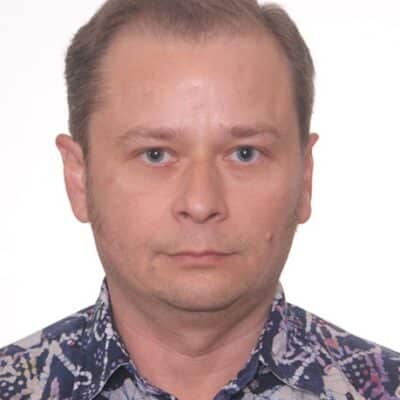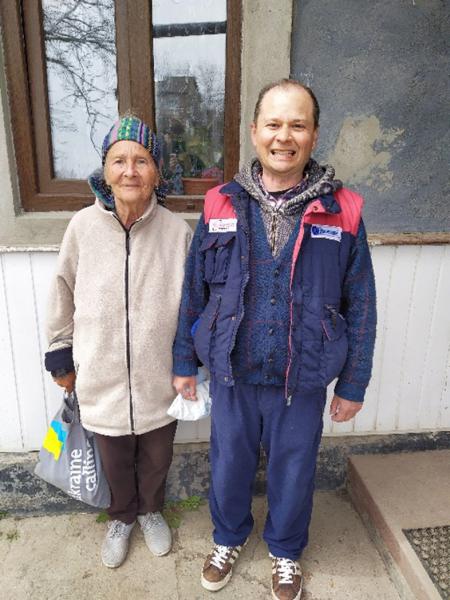Friday, September 22, 2023
Ararat L. Osipian
Ph.D., Leadership and Policy Studies, Vanderbilt University
Ph.D., Political Economy, Karazin Kharkiv National University
M.A., Economics, Vanderbilt University
M.Sc., Economics, Karazin Kharkiv National University
Ararat L. Osipian is a Founding Fellow of the New University in Exile Cosortium in New York.

I am a Founding Fellow of the New University in Exile Consortium at the New School University in New York, presently conducting fieldwork in Ukraine. I am mostly known for my work on academic corruption and corporate raiding. My books include Political and Economic Transition in Russia: Predatory Raiding, Privatization Reforms and Property Rights (Palgrave Macmillan, 2019), The Political Economy of Corporate Raiding in Russia (Routledge, 2018), and The Impact of Human Capital on Economic Growth: A Case Study in Post-Soviet Ukraine, 1989-2009 (Palgrave Macmillan, 2009).
Most recently, I was Visiting Professor at the Terrorism, Transnational Crime and Corruption Center, Schar School of Policy and Government, George Mason University, and, prior to that, Associate Researcher at the University of Wisconsin-Madison, hosted by the Center for Russia, East Europe, and Central Asia (CREECA) and the Political Science Department, enjoying conversations with Scott Gehlbach, Yoshiko Herrera, and Kathryn Hendley. I hold a Ph.D. in Education and Human Development, with a concentration in Leadership and Policy Studies, from the Peabody College of Education at Vanderbilt University, where I was a fellow of the U.S. Department of State. I received grants and fellowships from Edmund Muskie/FSA, the Institute of International Education, the Soros Foundation, the Open Society Institute, the New Europe Foundation, Yale, Vanderbilt, UW-Madison, and CEU. I’ve done fieldwork in the US, Armenia, Azerbaijan, Canada, Georgia, Hungary, Moldova, Romania, Russia, and Ukraine.
My current book project, World Bank Comes to Ukraine: University Mergers, Protests, Corruption, War, brought me to Ukraine. After many years of inaction, the World Bank finally came to Ukraine’s higher education sector with an approved $200 million loan. The Ukraine Improving Higher Education for Results Project aims to improve efficiency, conditions for quality, and transparency in Ukraine’s higher education system. Due to challenges in Ukraine’s academic landscape, it is difficult to understand the true magnitude of the problems on the ground. Moreover, the war put the entire project at risk, as many universities are now damaged or destroyed, and many scholars were displaced or dispersed.
In the early morning of February 24, 2022, I woke up to three loud explosions that shook my windows and everything around. These were the shock waves of the missile explosions that hit Kramatorsk, the administrative center of the Donetsk region in eastern Ukraine. I evacuated from the city on a crowded train, leaving everything behind. Later, the railway station was hit by a missile strike, leaving 60 dead and 120 wounded. In times of war, being an endangered scholar feels like being an endangered species. You have to follow your instincts to survive. While hearing distant and not-so-distant explosions on my last days in Kramatorsk, I was working on a book review of How Corruption and Anti-Corruption Policies Sustain Hybrid Regimes. Strategies of Political Domination Under Ukraine’s Presidents in 1994–2014 by Oksana Huss, on invitation from Slavic Review. I submitted the review the evening before the departure—scholarly duty above everything else.
The challenges of being a displaced scholar are immense. While at home, I was unhappy that my web camera was not working, so I could not fully participate in online seminars. Today, I do not have a computer, let alone a home. I became an internally displaced person (IDP). Being an IDP means being a refugee in my own land. As I continue my fieldwork in Ukraine, I see my task as converting these challenges into opportunities. Direct participant observation is a gold standard of any fieldwork.

Ukraine needs to increase academic mobility, the backbone of educational internationalization, but it is severely restricted due to the war. As a result, Ukraine risks transforming into one of those post-Stalinist dystopias that are hard to get to; once you are in, it is hard to get out. Despite much discussion about sanctions and restrictions, Russia’s academic ties continue to expand, while Ukraine’s academic ties become severed.
Internationally recognized scholars can serve as academic ambassadors of Ukraine abroad. They can promote Ukraine’s positive image and increase publicity, thus increasing international aid flow during the war. Unfortunately, Ukraine’s image abroad is mixed and confusing, and this needs to change. Simply put, Ukraine has yet to sell itself globally. Ukrainian scholars of international standing may become instrumental in “advertising” and “selling” Ukraine to the world, securing more aid for the country. In response, major world powers and autonomous universities can channel more resources to help scholars at risk and support organizations such as the New University in Exile Consortium, led by Arien Mack.
I continue my crusade against corruption in times of peace, and equally so in times of war, despite unfavorable circumstances. It is crucially important for Ukraine to continue implementing the anti-corruption reform agenda, despite the challenges caused by the war.
I